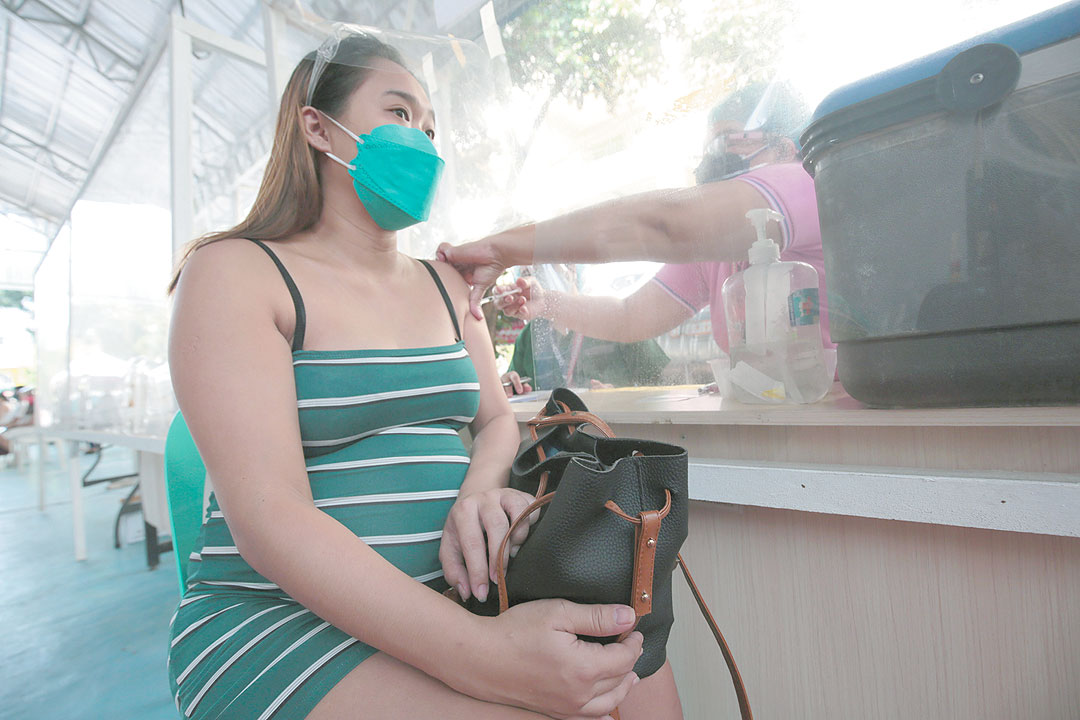
Medicine Cabinet
By Teodoro B. Padilla

Maternal immunization is vital in reducing maternal and neonatal mortality, particularly in the Philippines where maternal mortality remains a significant public health concern. Immunization is one of the most successful and cost-effective health interventions known. It is second only to clean water in greatly reducing the burden of infectious diseases.
“Immunization during pregnancy helps protect both mother and baby from vaccine-preventable diseases and their serious complications,” said Dr. Sybil Bravo, Head of the Philippine Obstetrical and Gynecological Society (POGS) Committee on Immunization for Women, during the Health Connect webinar dubbed “Championing Maternal Health” organized by the Philippine Foundation for Vaccination and Philippine Medical Association, and with support from Sanofi-Pasteur.
POGS recommends pregnant women receive the influenza (flu) vaccine, the Tdap (Tetanus, Diphtheria, and Pertussis) vaccine or Td (Tetanus and Diphtheria) vaccine, the Hepatitis A vaccine, the Hepatitis B vaccine, and other inactivated vaccines.
A higher number of deaths among pregnant women was seen during the influenza pandemics in 1918-1919, 1957-1958, and 2007-2008, Dr. Bravo said. Getting sick with the flu, especially during the third trimester, puts pregnant women at higher risk of severe illness and even death. Influenza can also cause premature labor, preterm birth, and low birth weight among infants. Plus, when the mother develops a high fever due to influenza, it can lead to congenital neural tube defects in the fetus.
On the other hand, pertussis or whooping cough can cause preterm labor and delivery. The mother can develop pneumonia that is serious enough to warrant intensive care unit admission. The baby can develop intracranial hemorrhage, convulsions, breath-holding spells, encephalitis, and pneumonia, and could even die, she explained.
Pregnant women are also at risk of developing tetanus due to the use of unsterile equipment and poor hygiene, Dr. Bravo warned. Unvaccinated pregnant women and their newborns are at higher risk for severe tetanus complications. Moreover, infants born to unvaccinated mothers are unprotected against tetanus during the first months of life.
“After getting vaccinated, the mother develops antibodies which are transferred to the fetus through the placenta, providing the newborn with sufficient protection during his or her first six months of life. Remember that there are some vaccines that cannot be given to babies during this period, so maternal immunization is really important,” Dr. Bravo said.
Breastfeeding may also have a role in the transfer of maternal antibodies to the fetus following vaccination of the pregnant mother, she noted. The mother’s antibodies are secreted into her colostrum which are ingested by the newborn during breastfeeding thereby providing mucosal immunity, the body’s first line of defense against toxic and disease-causing agents. After the mother is vaccinated against influenza and pertussis, increased levels of disease-specific, maternal antibodies are observed in the breastmilk up to several weeks after the mother gives birth.
Pregnancy is an opportune time to schedule catch-up immunization after birth and prior to hospital discharge for recommended vaccines that pregnant women may have missed, such as hepatitis B, MMR (measles, mumps, rubella) and varicella, to protect future pregnancies, explained Dr. Bravo.
“Filipino women in rural areas do not receive adequate antenatal services. To make vaccines widely available to all Filipino women, specifically during pregnancy, we need to have multistakeholder collaboration and continuous communication among primary healthcare providers such as physicians, nurses, midwives and barangay health workers,” said Dr. Bravo.
She recommended the proactive setting of vaccination appointments, and for healthcare professionals to remind women about their next vaccination doses. She also recommended providing clear immunization recommendations and putting these into practice, and encouraging a positive approach in asking questions from patients.
Dr. Bravo underscored the importance of multistakeholder collaboration by quoting one of the recommendations from a paper by Quick et. al. on improving women’s health through Universal Health Coverage. She emphasized that women’s health must be a “shared agenda, with active engagement from country political and health leaders; local and international civil society, including advocates…and all others concerned with women’s health and equity.”
Teodoro B. Padilla is the executive director of Pharmaceutical and Healthcare Association of the Philippines (PHAP). PHAP represents the biopharmaceutical medicines and vaccines industry in the country. Its members are in the forefront of research and development efforts for COVID-19 and other diseases that affect Filipinos.